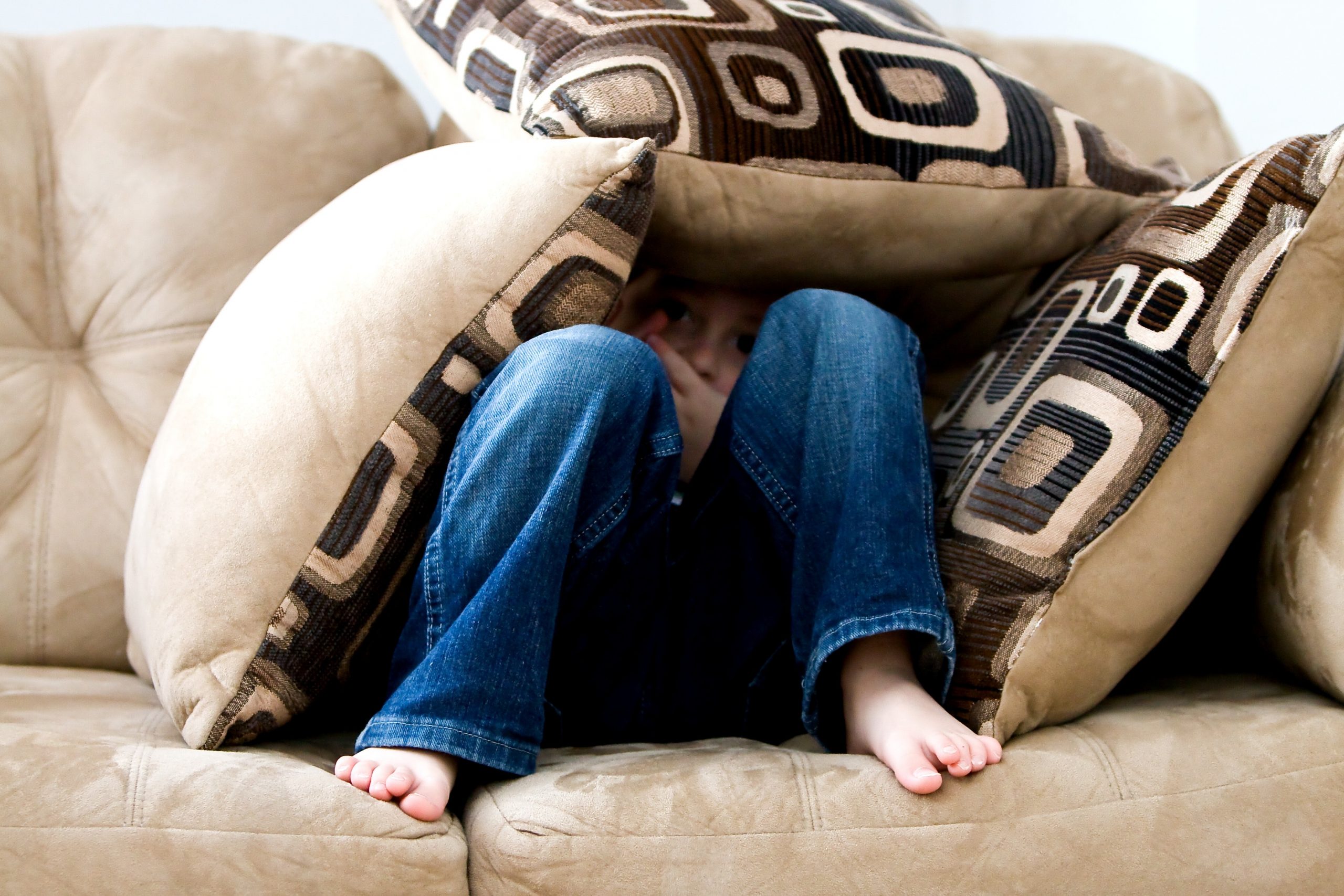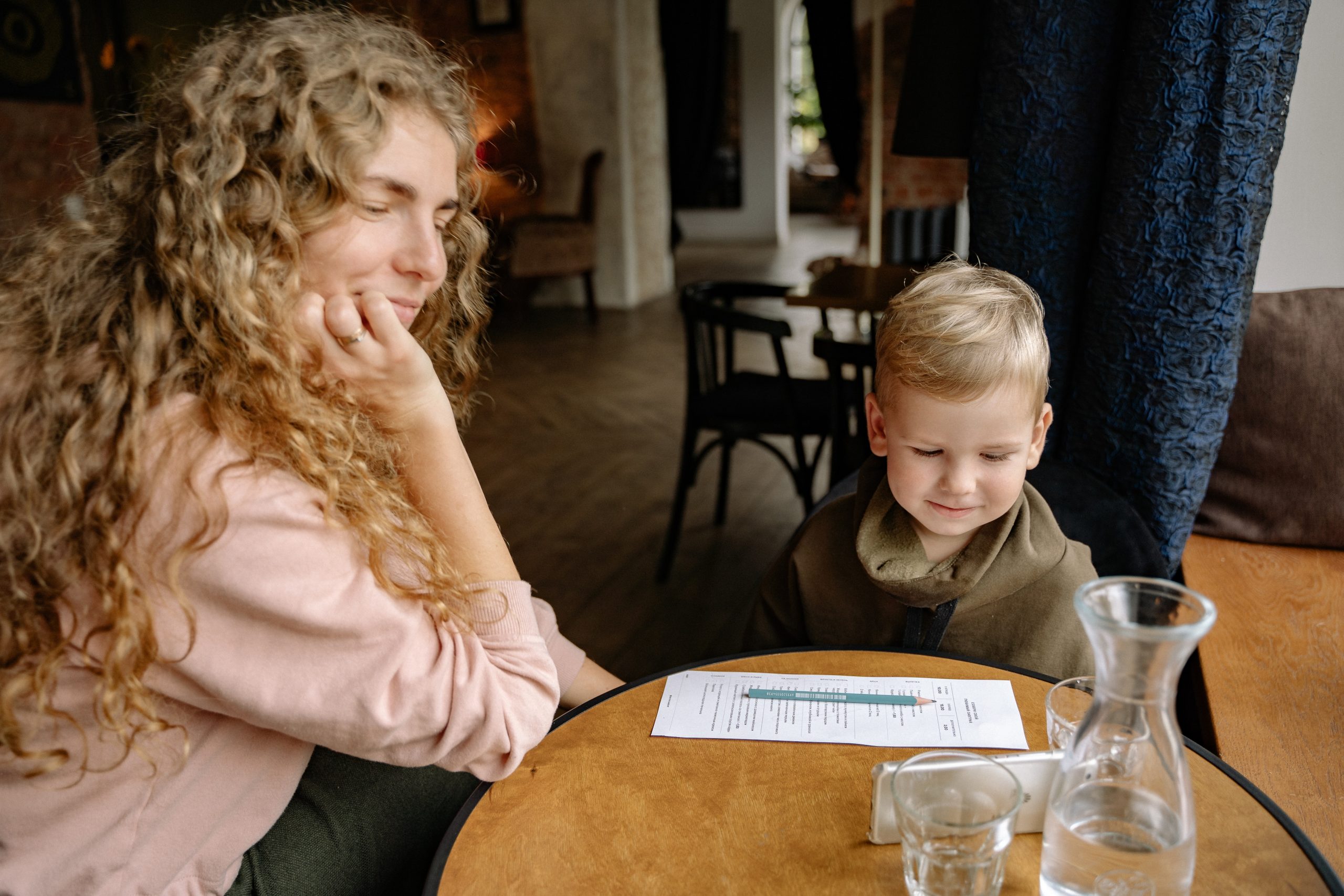Do you have a child who’s scared of the dark? Has an irrational fear of water? Loses it when a dog comes within 10 meters? Believes there are monsters under the bed? Screams at the sight of a bug on the footpath? Before you start to worry that these mystifying fears indicate there’s something wrong with your child, rest assured childhood fears such as these are a completely normal part of their development. Ultimately, learning to deal with fear is an important life lesson.
More often than not, our kids’ fears aren’t entirely rational but what they’re feeling, along with their physiological reaction to it, is very real indeed. Take comfort in the fact your child will grow out of these fears. In the meantime, here are nine things you can do to make the transition just that little bit easier for your little person.
Be patient
Don’t force your child to confront their fears before they’re ready. Remember, while the fear may be mystifying to you, it’s still very real to them. Instead, be patient, empathetic and let them confront their fears at their own pace.
That said, you also don’t want to overindulge the fear, which may work to validate it into something more concrete. Instead, talk them through the emotion they’re feeling in a calm and comforting manner.
Introduce role models
Childhood fears are common and for this reason, there are a plethora of resources out there to assist you in teaching your child how to deal with them. Seek out age-relevant children’s books, toys, and movies with characters and storylines that deal with overcoming fears and being brave.
Lead by example
Do you have a fear of your own? Perhaps you’re afraid of heights or don’t like being stuck in crowds … Sometimes the best way to teach your child how to overcome they fear is to ‘show’ them how it’s done. Lead by example and put yourself in situations where your child can witness how you navigate your way through your fears calmly and confidently … If Mum or Dad can do it, so can they!
Give them control
Fear can be a direct response to feeling physically threatened and helpless. Kids who are scared of the toilet, for example, are concerned they will be flushed down the loo; children who are afraid of dogs are worried they’re going to get bitten; little ones who are terrified of the monster under the bed are feeling vulnerable on their own in the dark. Giving your child an element of control in the management of their fear will go a long way towards making them feel safe.
For example, if they are afraid of intruders in the night, make shutting and locking their bedroom window one of their night-time responsibilities.
Encourage and praise
Dismissing your child’s fears or teasing them will achieve absolutely nothing positive. Belittling or ignoring your child may force them to internalize their fear rather than deal with it and also break their trust in you. Instead, talk to your child about their fears, reassure them that you are there for them, and encourage them to deal with their fears in their way – and in their own time.
It’s also important to praise their efforts – even mock up a ‘certificate’ to give them when they do something out of their comfort zone. It will go a long way towards building their confidence and overcoming their fears.
Answer their questions
Although childhood fears are usually based on imaginary or exaggerated perceptions, that doesn’t mean they aren’t very real to your child. Talk with them about their fears and try and understand where they’re coming from. Encourage your child to ask you any questions they like and do your best to answer them in gentle, age-appropriate ways.
If you don’t know all the answers, research them together at the library or online.
Stay calm
It’s never a pleasant experience for a parent to witness their child in a state of distress and sometimes parents may feel helpless in the face of it. Responding angrily or with humor will often result in further distress for your child. Remaining calm and consistent will ensure a quicker resolution.
When your child is in a state of fear, they’re not able to discuss the issues reasonably. Just be there to soothe and comfort.
Little steps
You can help your child conquer their fear by gentle exposure to that fear, which gradually increases with time and practice. You can do this in consultation with your child. For example, if he’s afraid of the bath, you can start by having a small amount of water in the bath, then gradually add more.
Use a jug to pour a little on his hands, then progress to pouring a little on the back of his neck. Keep taking small steps until he feels comfortable and confident.








